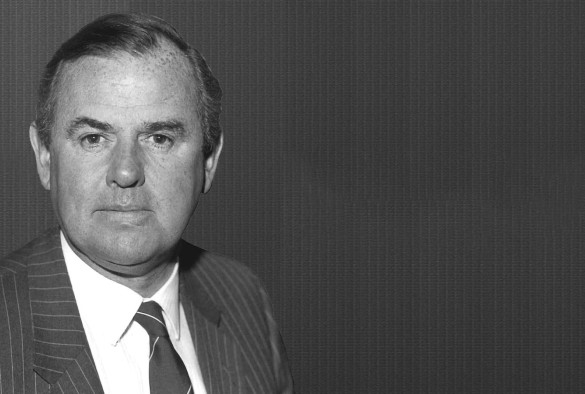University of Liverpool Awarded £2.5M for Parkinson’s Research in Tribute to Local Business Leader
A £2.5M donation in memory of Peter Johnson, the former owner of Everton and Tranmere Rovers football clubs, will help the University of Liverpool and The Walton Centre NHS Foundation Trust drive forward new discoveries, treatments and interventions in Parkinson’s Disease.
The donation will endow the joint appointment of a new Peter Johnson Chair in Parkinson’s Disease and Movement Disorders at the University and The Walton Centre, alongside a Clinical Lecturer, Postdoctoral Researcher and PhD Researcher positions.
The two organisations have a wealth of research and clinical expertise in the area of Parkinson’s Disease and neurodegeneration, including a research group led by Professor Michael Clague, widely recognised as an authority in the field. The University of Liverpool and The Walton Centre are developing a joint strategy to create and invest in a world class environment for neuroscience research. Research focused on Parkinson’s Disease and other neurodegenerative diseases is a key area for development.
The new funding is via the Johnson Foundation, which Peter Johnson established in 1987 to support the advancement of education, preservation and protection of health, and relief of poverty and sickness in the Liverpool City Region.
Chairman and daughter, Kate Eugeni said: “Our father had fought this disease since 2014 and regularly talked about not perhaps a cure per se but something that would make for a more comfortable life and a better understanding of the disease. He had been party to all of the initial conversations with the University, asking questions about how this donation could make an impact, and was passionate that this research would happen here in Liverpool. It’s a real sign of hope and determination, showing that we’re making strides towards a cure and a better future for everyone dealing with Parkinson’s.”
Peter Johnson was awarded an honorary degree from the University of Liverpool in 2023 in recognition of his business achievements and philanthropy.
Professor Louise Kenny, Executive Pro-Vice-Chancellor for the Faculty of Health and Life Sciences, said: “Thanks to this generous donation from the Johnson family, our collaborative research into Parkinson’s disease with The Walton Centre will go from strength to strength. It will help to improve our understanding of the underlying biology, develop new treatment strategies and improve patient outcomes and quality of life.”
Professor Tim Jones, Vice-Chancellor at the University of Liverpool said: “This generous gift from the Johnson Foundation will help the University to make new advances in its Parkinson’s Disease research. The University recognised Peter Johnson for his business and philanthropic achievements with an honorary degree in 2023 and through this donation that legacy of improving lives in our region and beyond is set to continue.”
Parkinson’s Disease is a complex neurodegenerative disorder affecting over 10 million people worldwide. Parkinson’s Disease is the fastest growing neurological condition in the world. In the UK alone, around 145,000 people live with the condition, and this number is expected to double by 2065.
The University of Liverpool is first in the UK for research environment (vitality and sustainability) in neuroscience in REF 2021, with 100 % of Clinical Medicine research rated outstanding or very considerable. The University is also home to the world-leading MRC/NIHR Trials Methodology Research Partnership, and the Liverpool Clinical Trials Centre.
The Walton Centre, rated as “Outstanding” by the Care Quality Commission, is the only dedicated UK Neuroscience NHS Foundation Trust. The Walton Centre has one of the largest deep brain stimulation services in Europe, with over 500 patients treated for Parkinson’s Disease and other movement disorders.
Deputy CEO and Medical Director of The Walton Centre Dr Andrew Nicolson said: “I’m delighted that we’re able to work more closely with the University of Liverpool to advance research into Parkinson’s Disease. Thanks to the Johnson family’s support, we will be able to investigate new avenues of treatments for the disease, and hopefully improve care for future patients.”

